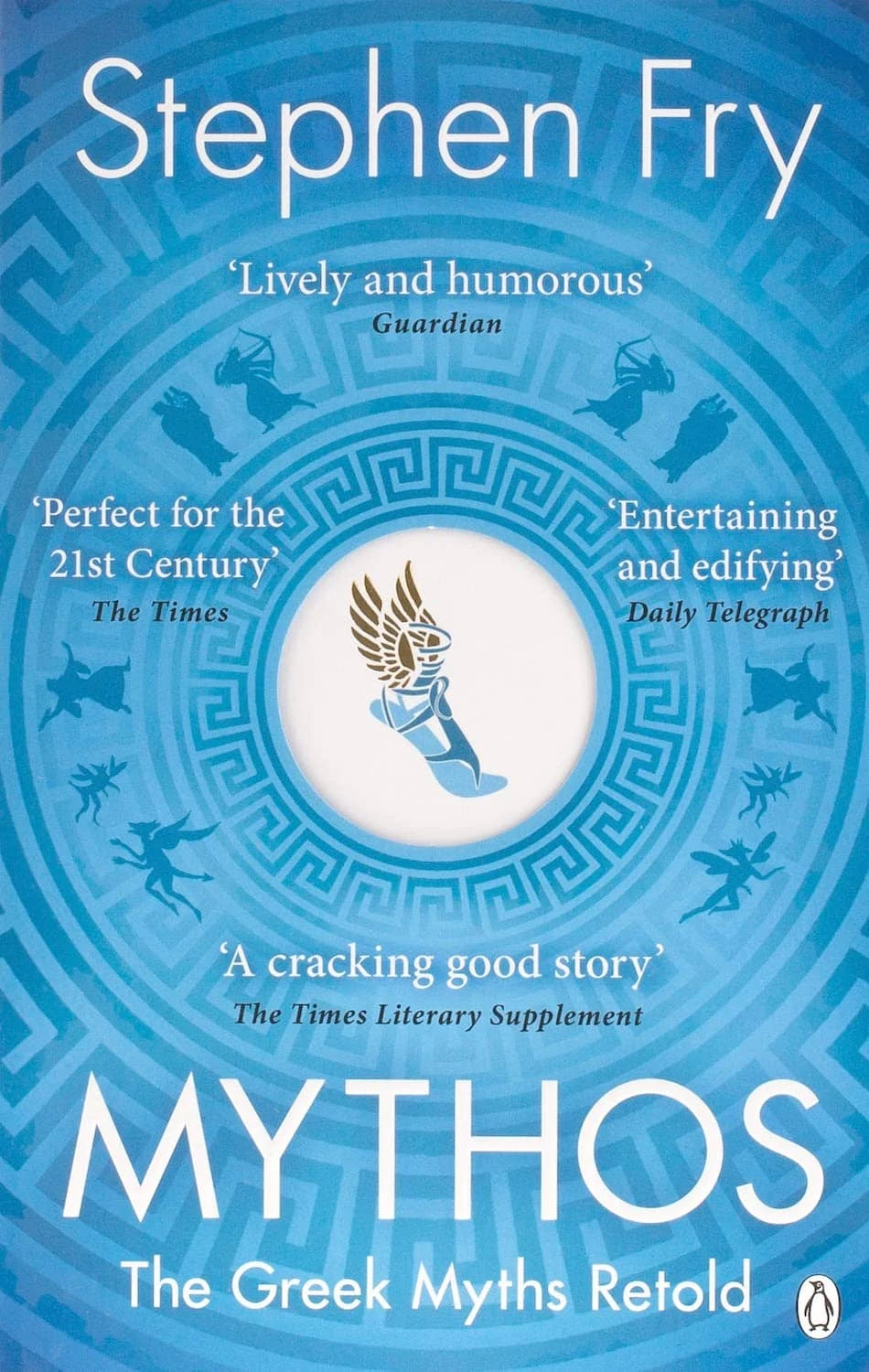
Nobody told me the Greek myths were so funny
A hitchhiker’s guide to Greek mythology
The Greek myths are a serious matter. It all began with the Earth and Sky, Gaiga and Uranus, who birthed the Titans Oceanus, Coeus, Crius, Hyperion, Iapetus, Theia, Rhea, Themis, Mnemosyne, Phoebe, Tethys, and Cronus. From them were born the Gods Zeus, Hera, Demeter, Poseidon, Hades etc. They would divide amongst themselves the realms from the sea to the sky to the trees to the thieves to the dreaded underworld. There would be a lot of incest. A lot of incest. Does this have to be a serious matter?
Stephen Fry makes a complete hilarity of the Greek myths as he retells them, starting with the chaos that existed at the very beginning. But hilarity does not mean disrespect. Mr Fry’s down-to-earth humour and modernised narration of the stroies of Grecian Titans, Gods and Demigods takes us every closer to the complex web that is Grecian mythology and unravels it in a way that not only helps us keep up with the fast-paced tale but also follow the web-like, incestuous family tree of Greek’s greatest.
Greek mythology is at times absurd. It has irrational beings, imperfect beings, and beings who indulge in questionable decisions. This sets the perfect stage for Mr Fry to stretch his mastery across the Grecian universe, telling, repeating, juxtaposing, commenting on and roasting the Olympians to no end.
The story, though incredibly long, moves at an engaging pace. Not having read the actual Greek mythologies myself I have to rely on the words of others who tell me that Mr Fry chooses to go deep into stories here at the cost of breadth, leaving several stories unsaid. Especially if you never knew those stories in the first place, this turns out to be perfectly fine and wraps things up rather tightly.
While I read this, I had been reading, in parallel, ‘Tales of Norse mythology’ by Helen Guerber—a book I picked over Neil Gaiman’s ‘Norse mythology’ despite many recommendations against it simply because I did not think a chatty tone would fit a topic as serious as mythology. Even when I finally made up my mind to try the funny stuff out with Mr Fry’s book, I was hesitant, but my fears turned out to be unfounded. In hindsight, I probably would have enjoyed Mr Gaiman’s book just as much although I do not regret spending time with Ms Guerber’s work.
If you are unfamiliar with Greek mythology, this is a great book to start with. It is engaging, does away with superfluity that mythology is so often known for and makes the entire journey fun. Does it take away from nuances? Perhaps. Does it feel unfulfilling? Absolutely not.
My favourite part of Mythos were the footnotes and snippets where Mr Fry provides examples of words in use today which trace their roots back to Greek and, specifically, to Grecian mythologies and titans and olympians. Some were as one would expect while others were objectively hilarious.
This book may not satisfy the curiosity of anyone looking for an academic treatment of Greek mythology, but it will be a memorable, engaging and informative read that will have you laughing to yourself almost guiltily.